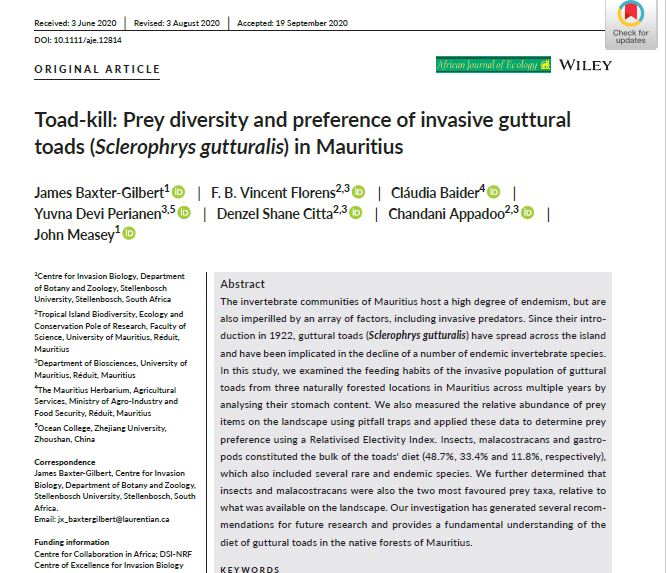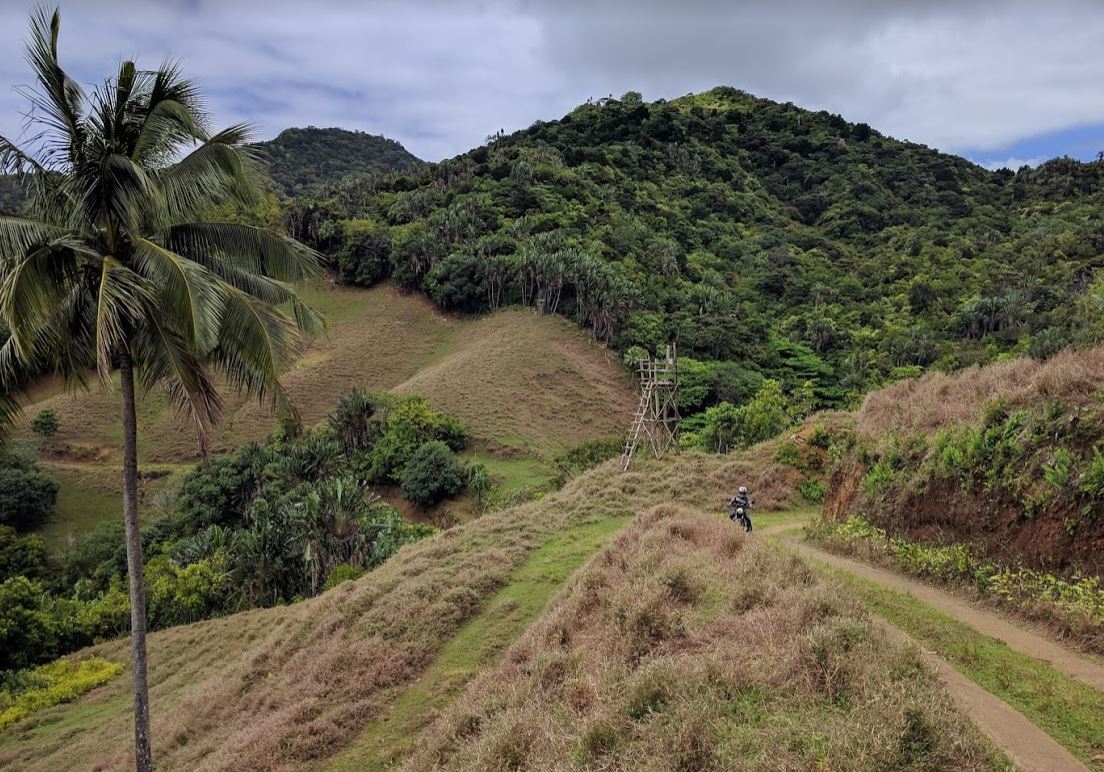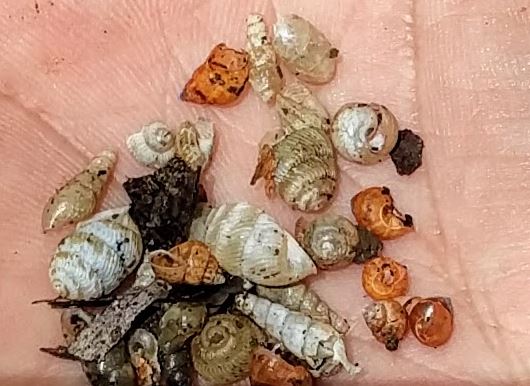Insights into Guttural toad impact on Mauritius
Guttural toads were introduced to Mauritius nearly 100 years ago in order to control cane beetles on the island. They have spread from the plantations all over the island, including into indigenous forest. For a long time there has been speculation that the toads predate on endemic threatened snails. Now we have published data from two dietary studies that shows that these snails make up a significant component of Guttural toad diet.
I visited Mauritius back in October 2017 (see here) when I worked with Denzel Citta in his final year project on the stomach contents of Guttural toads from different forests on the island. Denzel completed his project, but Vincent Florens and Claudia Baider already had dietary data from another student, Yuvna Perianen, who had done a similar project 10 years earlier. Luckily, they still had the dataset, and it is complementary to the one collected by Denzel.
Vincent is an expert on the endemic snails of Mauritius, and had identified all of the different species that had been found in the guts of Guttural toads. Over the years, he had even found, and then relocated, a species previously thought to be extinct but that popped up in the toads stomach contents. Needless to say, toads eat snails and together the two studies were able to assess the level of impact.
James Baxter-Gilbert was able to combine these dietary datasets and write up a paper for African Journal of Ecology:
Baxter Gilbert, J.H., Florens F.B., Baider, C., Perianen, Y.D., Citta, D.S., Measey, J. (in press) Toad-kill: Prey diversity and preference of invasive guttural toads (Sclerophrys gutturalis) in Mauritius.African Journal of Ecology https://doi.org/10.1111/aje.12814

James has also written a piece for The Conversation:



